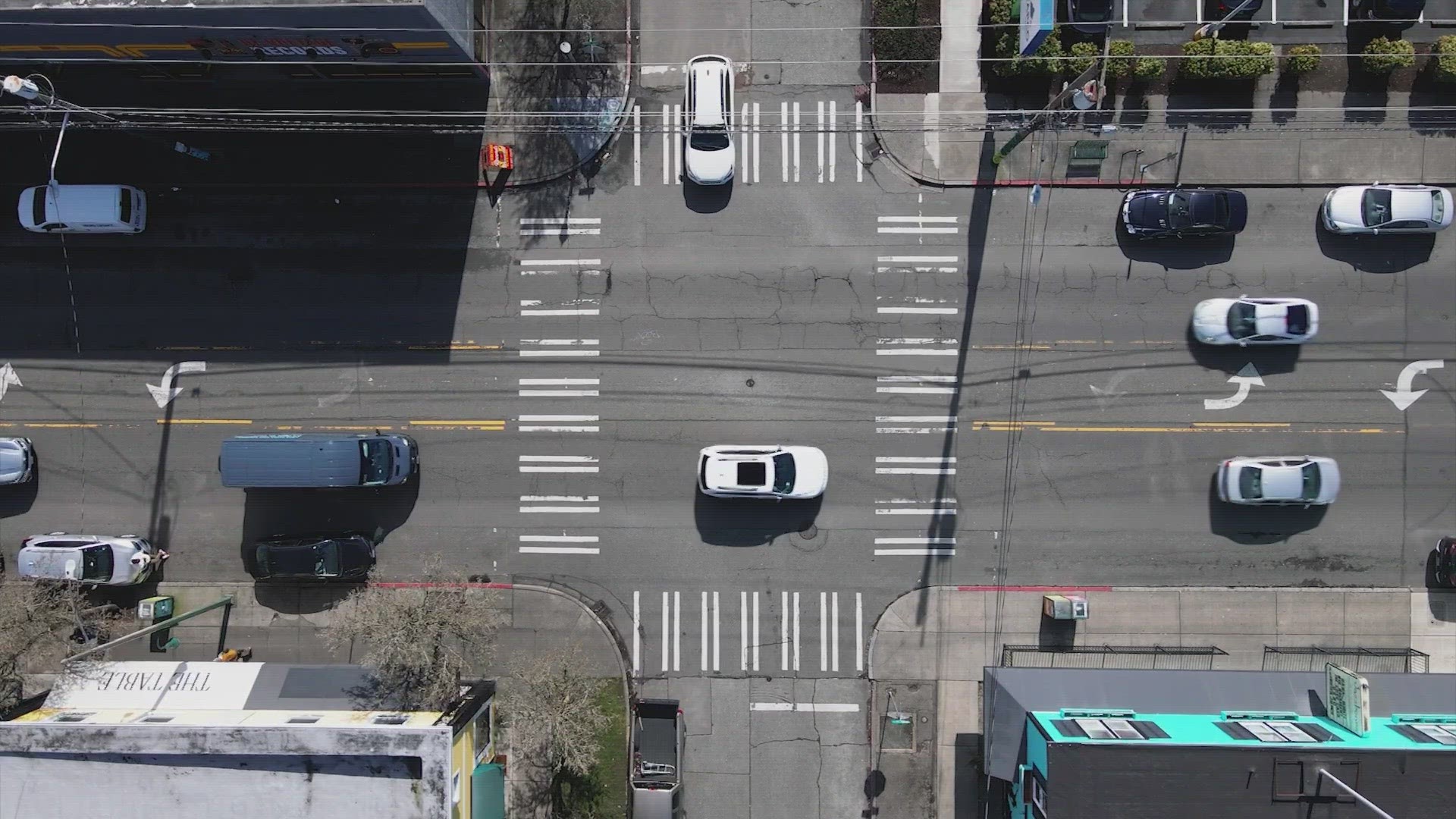TACOMA, Wash. — The Tacoma Police Department recently released data that shows traffic collisions may have slightly increased since this time last year. Last year, the department responded to 45 calls to vehicle collisions, with 21 of them ending in fatalities.
In just the past two months, Tacoma Police have already responded to eight traffic collision callouts, with six of those collisions being fatal.
Tacoma Police say speed is a major factor in these collisions, so Tacoma is hoping some new policies will save lives.
Arterial roads in four neighborhood business districts had their speeds lowered from 30 to 25 mph back in January.
It’s part of Tacoma’s adoption of the Vision Zero initiative, and Tacoma says the aim is to eliminate traffic and fatal collisions by 2035.
Carrie Wilhelme of Tacoma Public Works says reaching that goal requires a comprehensive approach.
“We know that we have to look at the systems in place that are causing those unsafe behaviors on our streets, and that’s what Vision Zero does,” she explains. “It really pushes you to reflect on and look at those broken systems, and what needs to be done to change them.”
Some residents say they’ve seen an impact from lowering the speed limits on Sixth Avenue.
“Coming down sixth, I have noticed that people are going much slower than they have been,” says Savannah McLaughlin, who works at Tacoma Java. “I’ve noticed people usually speed through, and now they’re going the speed limit, sometimes below the speed limit.”
However, Tyrome Flowers of Phenomenal Vintage, says he hasn’t seen too much change.
“I still see people speeding,” he said. “You don’t see so much traffic from the freeway, you don’t see so much speeding, but at nighttime, yeah, people are still speeding around here.”
Wilhelme says it’s too early to see just how effective the lowered speed limits have been in reducing collisions, and changing the culture of driving in Tacoma is a long process.
But given what’s at stake, Wilhelme says that process can’t be avoided.
“Every person who dies or is seriously injured has an incredibly negative impact on that person and the community, and the family, and the people who love them,” she said. “So that’s why not doing anything is not an option. We need to address this.”

